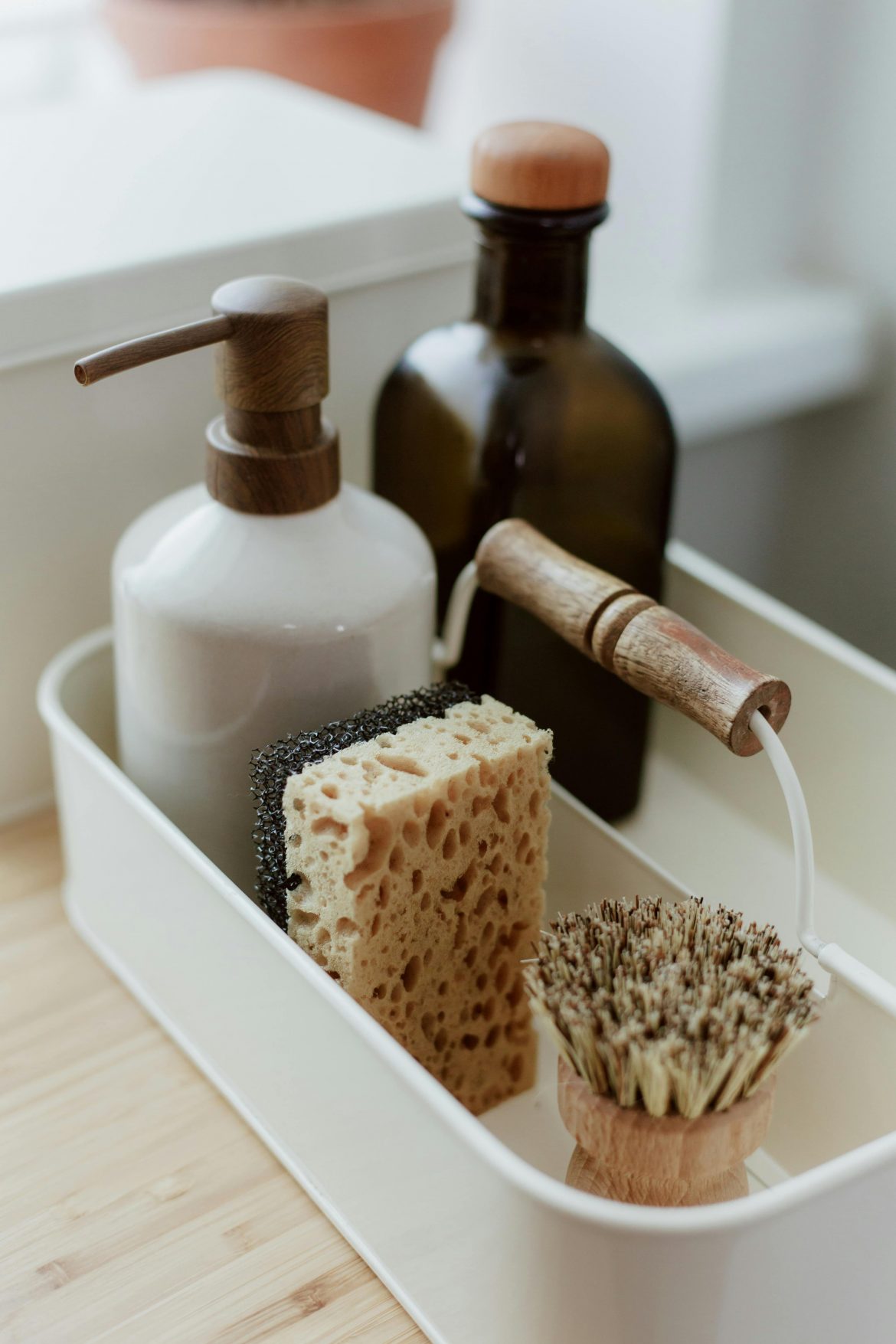Kitchen sponges are the perfect breeding ground for bacteria. They’re moist, absorbent, and often come into contact with food particles and dirty surfaces – ideal conditions for microbial growth. In fact, studies have shown that kitchen sponges can harbor more bacteria than your toilet seat, including strains like E. coli and Salmonella.
Even if your sponge looks clean or smells okay, it may still be a host to invisible bacteria. And every time you reuse it, you could be spreading those germs around your kitchen surfaces, dishes, and even your hands.
The benefits of changing your kitchen sponge regularly
Better hygiene and health protection
Regularly changing your sponge helps reduce the risk of spreading harmful bacteria. This is especially important if you’re preparing raw meat, poultry, or seafood, as cross-contamination can happen easily.
A fresher, cleaner kitchen
Old sponges tend to develop unpleasant odors, which can linger in your kitchen. A fresh sponge means a fresher-smelling, more inviting cooking space.
More effective cleaning
Sponges wear out with use and become less effective at scrubbing and absorbing. Swapping yours out frequently ensures you’re cleaning your dishes and surfaces thoroughly, not just smearing germs around.
Peace of mind
Sometimes, the little things can make a big difference. Knowing you’re keeping your kitchen safe and clean can help ease some of the daily stress that comes with cooking and cleaning.
How often should you replace kitchen sponges?
Experts recommend changing your sponge at least once a week. However, if you’re using it heavily, notice a bad smell, or see it starting to break apart or discolor, replace it sooner.
Here are a few additional tips to extend your sponge’s cleanliness between changes:
-
Disinfect it daily: Microwave a damp sponge for 1–2 minutes or soak it in a bleach solution (1 part bleach to 9 parts water for 5 minutes).
-
Keep it dry: Bacteria love moisture. Wring out your sponge thoroughly after each use and store it in a well-ventilated area.
-
Avoid raw meat cleanup: Use disposable paper towels or separate cloths for cleaning up raw meat juices.
Other alternatives to sponges
If you’re looking for a more sustainable or hygienic alternative, try:
-
Silicone scrubbers – easy to clean and quick-drying
-
Dish brushes – can be cleaned in the dishwasher
-
Reusable cloths – machine washable and more durable
Your kitchen sponge may be small, but it plays a big role in the cleanliness and safety of your home. By changing it regularly and caring for it properly, you can protect your household from unwanted bacteria, keep your kitchen fresh, and ensure your cleaning efforts aren’t going to waste. Add a reminder to your calendar if you need to – but trust us, your future self (and your immune system) will thank you.
ALSO SEE:
Feature Image: Pexels

